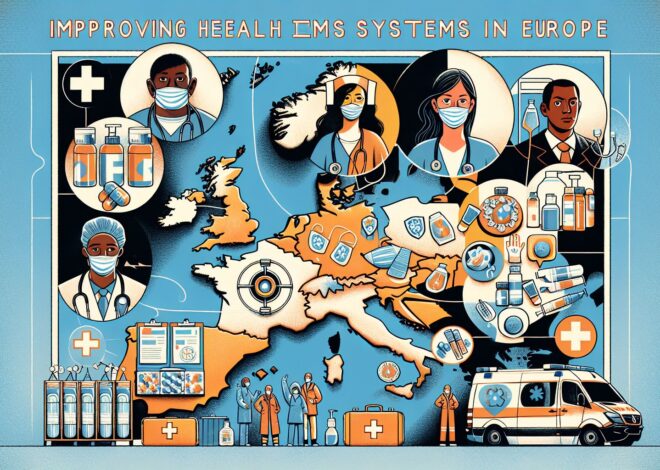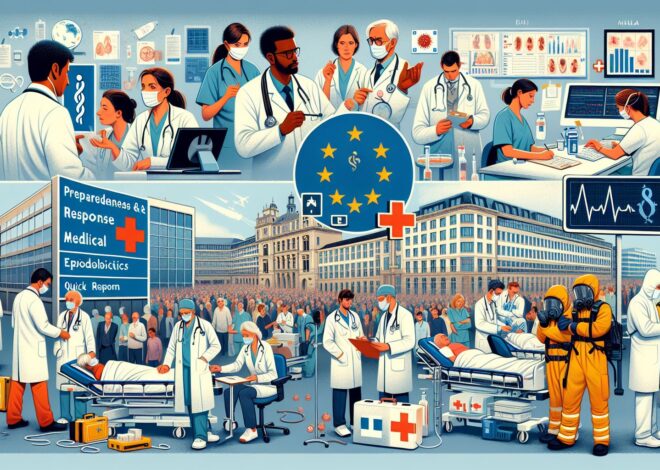
Ensuring the Resilience of European Health Systems: A Call to Action
As the world continues to grapple with the unprecedented challenges brought forth by the COVID-19 pandemic, the importance of preparedness and response in European health systems cannot be overstated. Health professionals, policymakers, and concerned citizens must come together to ensure the resilience of these vital institutions, which serve as the backbone of public health and safety.
The Importance of Preparedness
Preparedness is the key to effectively mitigating the impact of health crises on European societies. It involves proactively identifying potential threats, developing response plans, and building capacity to rapidly mobilize resources when needed. The COVID-19 pandemic has highlighted the crucial role of preparedness in safeguarding public health and preventing healthcare systems from becoming overwhelmed.
Health professionals play a critical role in preparedness efforts by staying informed about emerging health threats, participating in training exercises, and adhering to best practices in infection control. Policymakers must prioritize public health funding and infrastructure to ensure that health systems are equipped to respond to a wide range of challenges. Concerned citizens can support preparedness efforts by following public health guidelines, getting vaccinated, and staying informed about health issues affecting their communities.
The Challenges of Response
Despite the best efforts of healthcare professionals and policymakers, responding to health crises can be highly challenging, particularly when faced with rapidly evolving situations. The COVID-19 pandemic exposed weaknesses in European health systems, from supply chain disruptions to shortages of essential medical supplies. The unprecedented scale of the pandemic strained hospital capacity and put immense pressure on healthcare workers, leading to burnout and mental health issues.
To improve response capabilities, European health systems must invest in robust surveillance systems to detect outbreaks early, implement effective communication strategies to disseminate information to the public, and collaborate with international partners to coordinate responses across borders. By learning from past experiences and implementing evidence-based practices, health systems can better prepare for future challenges and protect the health and well-being of their populations.
Moving Forward Together
As we look towards the future, it is clear that the resilience of European health systems will depend on the collective efforts of health professionals, policymakers, and concerned citizens. By working together to enhance preparedness and response capabilities, we can build stronger, more resilient health systems that are better equipped to withstand future health crises.
Health professionals must continue to advocate for increased funding and support for public health initiatives, while policymakers must prioritize the health and well-being of their citizens above all else. Concerned citizens can contribute by staying informed, supporting public health measures, and actively participating in efforts to protect the health of their communities.
In conclusion, the resilience of European health systems is a shared responsibility that requires collaboration and commitment from all stakeholders. By prioritizing preparedness and response efforts, we can build a healthier, safer future for all. Let us work together to ensure that our health systems are prepared to face any challenge that comes our way.



